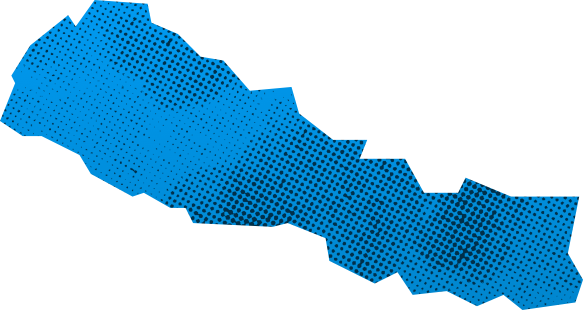
Volunteer statistics (ILO)*
Source: ILOSTATS. The data is collected by ILO from national statistical offices. As national statistics on volunteer work are produced using a variety of approaches and tools, direct and cross-country comparisons are not recommended. For more information, visit https://ilostat.ilo.org/topics/volunteer-work/
2018
Total volunteering by gender
Direct volunteering by gender
Organization-based volunteering by gender
Measurement work
Data source
- 2007
- 2008
- 2009
- 2010
- 2011
- 2012
- 2013
- 2014
-
2015
- Social survey
- 2016
- 2017
-
2018
- Labour Force Survey
- 2019
- 2020
- 2021
- 2022
- 2023
- 2024
- 2025
- 2026
Laws, Policies, Schemes on Volunteering
Does the country have a piece of legislation on volunteering?
No data
Does the country have a national policy, scheme, plan or strategy specific to volunteering?
Yes
| Name of specific policy, strategy or plan on volunteering at the national level. | Year created | Source link | What are the relevant SDG areas/crosscutting themes of the policy, plan scheme or strategy? |
|---|---|---|---|
National Development Volunteer Service's (NDVS) Volunteer Scheme |
1999 | No data | |
National Volunteering Policy (Draft to be endorsed by the Government)
|
2021 | No data | |
Does the country have a sectoral and cross-sectoral policy, scheme, plan or strategy that mentions volunteering?
Yes
| Name of specific policy, strategy or plan on volunteering at the national level. | Year created | Source link | What are the relevant SDG areas/crosscutting themes of the policy, plan scheme or strategy? |
|---|---|---|---|
| Periodic Plans published by the Government of Nepal | 1999 | View source | |
VNR Reporting
Paragraph 1, page 6
Consultative workshops were organized by NPC with government evaluation and oversight agencies, community of evaluators and academia. An EVALSDGs and Eval Agenda workshop was held by the National Parliamentarian Forum on Development Evaluation Policy in Nepal (NPFDEPN) and the Community of Evaluators-Nepal (COE-Nepal). Participants of the workshop included from the government agencies, NPFDEPN of the parliament, UN agencies, Voluntary organizations of Professional Evaluators (VOPEs), Eval Partners and EVALSDG Networks.
Paragraph 2, page 12
Several events have been organized to develop capacities of the commissioners, evaluators and users and also to promote evaluation culture in the country. Among these initiatives, starting from 2013, the NPC has been organizing annual Evaluation Networking (EvaNet) meetings inviting representatives from various government agencies, Voluntary Organization of Professional Evaluators (VOPEs), UN agencies, training institutions and academia. These annual EvaNet meetings encourage interactions among evaluation commissioners and professional evaluators to build evaluation capacity in the country. This platform has been effective to share and learn from each other and promote concerted efforts to institutionalize evaluations building capacities of the facilitators and evaluators.
Paragraph 3, page 12
In November 2015, the National Parliamentarians Forum on Development Evaluation Policy, Nepal(NPFDEPN), and the South Asia Parliamentarians Forum for Development Evaluation, the Evaluation Network of Nepal, Community of Evaluators of Nepal, the Community Evaluators of South Asia and Eval partners organized an Evaluation Week and conclave of Community of Evaluators in Kathmandu. It was attended by parliamentarians, Voluntary Organization of Professional Evaluators (VOPEs) leaders, government officials, and representatives from UN agencies, multilateral banks, private foundations and academia, with 300 international and 100 national participants. This event explored how to strengthen the enabling environment for evaluating the SDGs, the institutional capacities of VOPEs and civil society, the capacity of individual evaluators, the linkages between enabling environment, institutional capacities, and individual evaluator capacities
No mentionParagraph 1, page 16
The government has taken various efforts to put monitoring and evaluation (M&E) into practice. One such effort has gone into organizing the Evaluation Networking (Eval-Net) meetings, which has representatives from various government agencies, Voluntary Organization of Professional Evaluators (VOPEs), UN agencies, training institutions and academia.
No mentionUNSDCF Reporting
United Nations Sustainable Development Cooperation Framework for Nepal 2023-2027
View sourceVolunteering integrated into the narrative text of the UNSDCF
Paragraph 1, page 40
In this focus area, the UN will support the implementation of Nepal’s decent work agenda. This will include technical advice across a range of related areas including enhancing labour productivity, expanding sustainable livelihood and entrepreneurship opportunities, occupational safety and health, family-friendly work arrangements and care infrastructure for the reduction and redistribution of unpaid work services, improved skills development, volunteering opportunities, skill-matching, on the-job training, apprenticeships and mentorships.
Paragraph 2, page 52
To ensure environmental sustainability, and resilience to climate and disaster risks, a strong emphasis will be placed on UN support for capacity building, education, research and technology, utilizing disaggregated data to support sustainable development through evidence-based policies and risk-informed multi-sectoral planning at all three tiers of government, including municipalities. In this regard, the UN will dedicate additional support to assist provinces, prioritized districts that are at greatest risk, to formulate and adopt community-based adaptation and disaster risk reduction strategies. This will extend to include support for the mobilization of volunteer networks, women and
youth-led organizations as first responders to disasters.
Paragraph 3, page 57
The UN will work with the government at all levels and with civil society to promote civic engagement, voice and volunteerism.
No mention